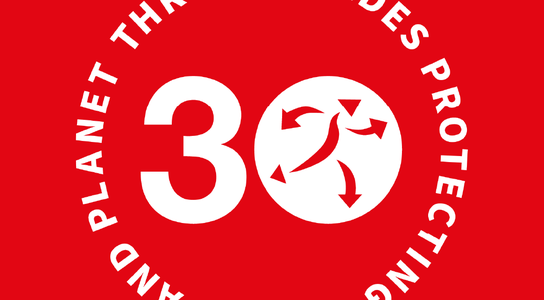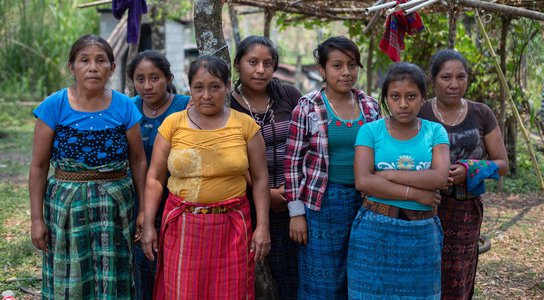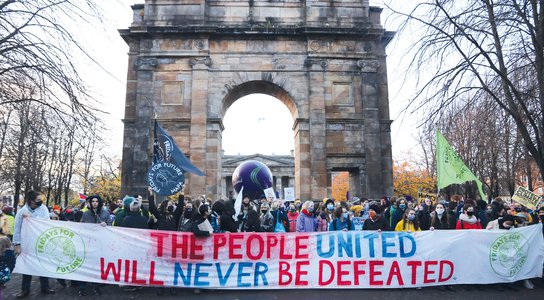At Global Witness, the murder of George Floyd and the Black Lives Matter protests that followed sparked conversations about racism in our organisation and our work, how our sector was perpetuating racism and also racism in society writ large. We sat with the uncomfortable recognition that we were complicit in systems and structures that harm others.
In response, we made, and published, a series of
commitments on racial justice and I pledged to provide an
update 12 months on. This is that update.
Firstly, I want to thank the organisers and trailblazers who have shared their immense knowledge, expertise, and insight with us in the last year. I also want to thank the members of staff who have shown such leadership, resilience, drive, and commitment in taking this vital work forward.
Just over a year has passed since we made the commitments, and we have made progress. But, as well as progress, we have also made mistakes.
Progress and Learning
Following George Floyd’s killing, we were quick to express shock and disgust, and we rushed to action with good intentions. Looking back now, this was our first mistake – an act of allyship that was as much performative as it was substantive.
Recruitment
12 months later, we are more aware that
a truly courageous response to such an event may begin with some internal
reflection rather than a public statement we can immediately show to others. In
our commitments to racial justice, for example, we pledged that every
recruitment interview we carried out would involve a person of colour on its
panel.
While we agreed this commitment with our People of Colour network, we should have paused to consider, fully, the implications. If we had, we would have realised that we were making this change at a time when our People of Colour colleagues' emotional and physical resources were already depleted. The consequence was less empowerment than the imposition of an additional burden upon them. So, three months ago, we suspended this requirement.
Instead, we’ve continued to build on making our recruitment processes more equitable in other ways. We’ve trained all recruiting managers on how to shortlist and interview. No one is allowed to lead a recruitment process unless they’ve attended a workshop delivered by Fearless Futures, who have been working with us since 2017. We’re trialling different ways for candidates to make applications and we’re working hard to use language in our adverts and job descriptions that is inclusive.
Accountability
Within our workplace, we committed to give staff space and a mandate to drive forward the work underpinning our commitments to racial justice. We now have a Diversity & Inclusion advisory group consisting of employees who collectively bring their different knowledge, talents, and lived experiences to help us create an inclusive workplace. Every member has dedicated time in their working week to prioritise changes we want to make and maintain oversight of the work we are doing across the organisation.
In the next 12 months, we want to increase our accountability by making racial representation more transparent. To do this, we have started to collect data that provides us with insight into our workforce demographics.
Campaigning and Communications
In our campaign work, we have committed to tackling environmental racism as a core goal of our US gas programme. We have yet to develop a complete strategy for how we are going to pursue this goal, however. We recognise that, as newcomers, we have much to learn from others that have already committed many years of ingenuity and effort to this issue.
In our external communications, we are exploring what it means to ‘amplify’ the voices of organisations or individuals from the Global South on their terms, rather than ours. We are challenging ourselves to ensure those we work with benefit from the public attention we seek to generate and consider more carefully whether exposure is always the right approach. We recognise that we need to engage with our partners more regularly and more collaboratively to build momentum around the issues we work on together.
There is still much to do here, though. We will shortly be seeking external expertise to help us develop a shared understanding of what racism is across the organisation, without which we now believe it will be hard to move forward. We will also be doing an audit on our campaign and communication work to assess which aspects of our work are harming others or perpetuating racism.
A work in progress
We are working to change systems that were and continue to be designed to keep people out. In the last year, global events have been a constant reminder that the world is not a place of equal opportunity and justice, especially if you are a person of colour. We’ve learned that we need to be more humble and more realistic about how much we need to do and how long it will take.
Our 12 months of work to meet racial justice commitments has not generated the list of incontestable achievements that I would like to be announcing as Global Witness’s CEO. It has, however, equipped us with a greater understanding of the challenges to becoming an anti-racist organisation; hopefully not just those applying to the broader societies and sectors in which we work, but also those that relate, specifically, to Global Witness.


